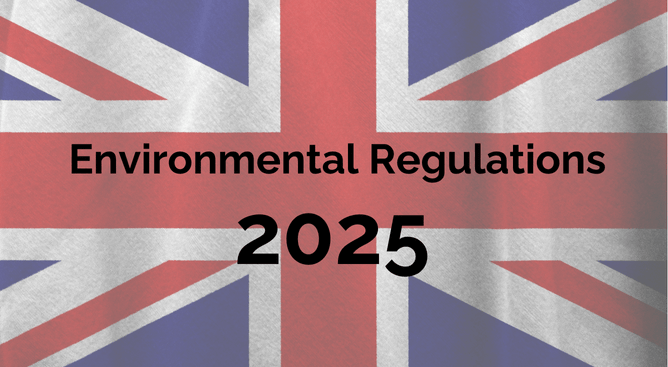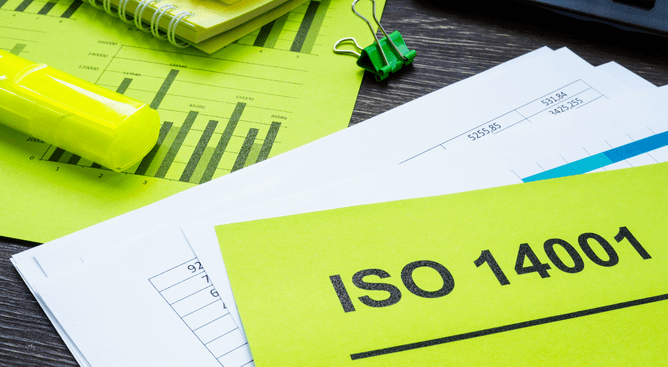With climate goals accelerating and post-Brexit laws evolving, UK businesses can’t afford to ignore environmental regulations. But what does it mean for your QHSE system?
Key regulatory shifts in 2025
Extended Producer Responsibility (EPR):
Companies must take responsibility for the full lifecycle of packaging waste.UK ETS (Emissions Trading Scheme):
Covers more sectors, including some smaller emitters - if you have significant energy use, it may apply.Mandatory Climate Disclosures:
Large companies (and those in the supply chain) must report environmental impacts - many SMEs are now affected indirectly.Biodiversity Net Gain:
Construction and development projects must deliver a minimum 10% increase in biodiversity on or off site.
I run a small business do I need to be compliant?
Yes! In 2025, smaller companies can no longer afford to ignore environmental regulations - even if they don’t operate in traditionally high-impact industries. That’s because the environmental landscape in the UK is shifting quickly, and compliance expectations are filtering down the supply chain, hitting businesses of all sizes.
One of the main drivers is Extended Producer Responsibility (EPR), which places greater accountability on businesses for the packaging waste they generate. While this initially focused on larger companies, smaller firms are now being asked to collect and report packaging data if they supply products to businesses who fall under the scheme. In short, if your customer is regulated, they’ll expect you to comply to help them stay compliant. It's a ripple effect - and small businesses are increasingly caught in the wave.
Additionally, public and private sector buyers are tightening environmental criteria for tenders and contracts. That means if you want to win work in construction, facilities management, manufacturing, or public services, you’ll likely be asked for environmental policies, evidence of legal compliance, or even an ISO 14001 certification. Without them, you're at risk of being cut out of procurement opportunities altogether.
There’s also growing pressure from ESG (Environmental, Social, Governance) reporting requirements. While smaller companies may not have to report directly, many are part of the supply chains of larger corporations who do. These larger companies are now demanding carbon footprint data, waste figures, and environmental risk assessments from their suppliers - which means even a small subcontractor or distributor can come under scrutiny.
Finally, the UK government is ramping up enforcement of post-Brexit environmental rules, particularly around waste management, pollution control, and biodiversity. Local authorities and regulators are increasingly checking that businesses of all sizes understand and comply with their duties under regulations like the Environmental Protection Act, Waste Duty of Care, and Control of Substances Hazardous to Health (COSHH).
In summary, 2025 is a tipping point. Environmental compliance is no longer just for big players - it’s becoming a basic expectation across the board. Small businesses that take action now - by reviewing their waste, emissions, and environmental policies - will not only stay on the right side of the law but also strengthen their reputation, win more work, and show they’re future-ready. We can help simplify this process and make sure your environmental obligations are clear, achievable, and integrated into everyday operations.
QHSE - environmental compliance checklist
Environmental risk assessments must be updated
Waste and emissions tracking needs to be precise and ongoing
ISO 14001 is becoming a must-have for supply chains.
What you can do now
Review your environmental impacts - energy, water, materials, waste
Introduce or update your Environmental Policy
Begin carbon footprint tracking (even simple tools help)
Work with a QHSE consultant like Paragon QHSE to ensure you're future-proofed.
Ready to get compliant without the headache?
Paragon QHSE is not your average Quality, Health, Safety and Environmental consultancy. We cut through the jargon and deliver straightforward, practical support that fits your business - not the other way around.
Whether you're aiming for ISO certification, need help with risk assessments, or simply want to get your QHSE house in order, we’re here to make it simple, stress-free, and fully compliant.
Get in touch today and see how we can support your business with clarity, not complexity.

